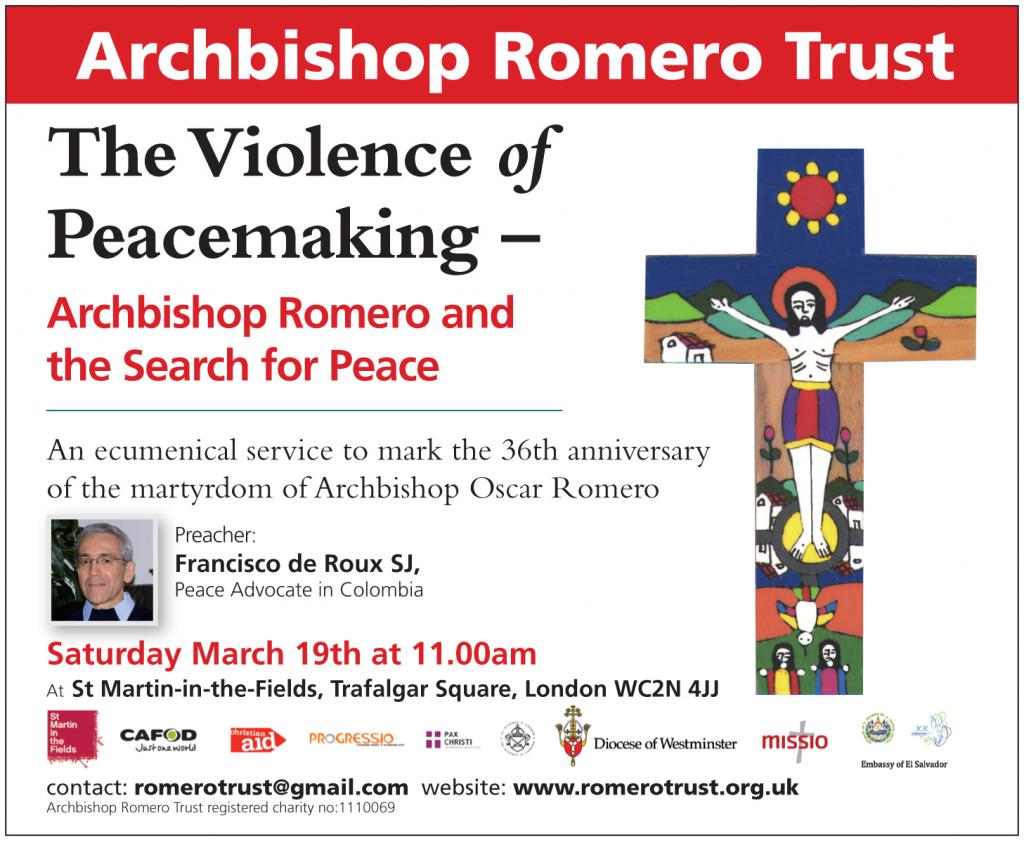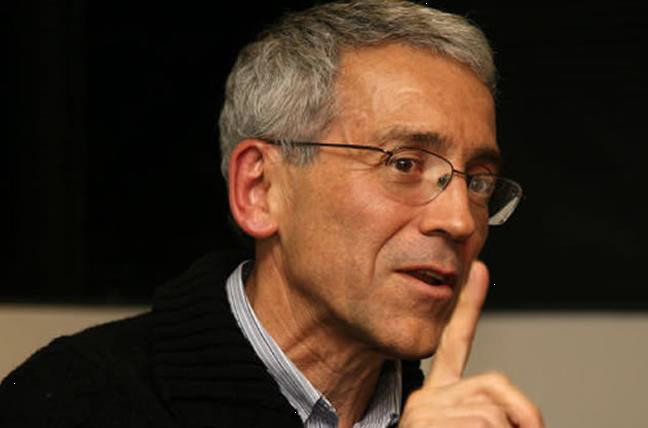The guest speaker for the Romero Week events in March 2016 is Fr Francisco de Roux (known as Fr Pacho), a member of the Jesuit province of Colombia. He will give the address at the ecumenical service at St Martin-in-the-Fields in Trafalgar Square on 19 March on the theme: ‘The Violence of Peacemaking: Archbishop Romero and the Search for Peace’.
Since the 1980s Fr Pacho has been a leading voice in the efforts to negotiate a settlement to Colombia's decades-long armed conflict. He has received numerous awards recognising his contribution to human rights and peace-building: among them the French Légion d’Honneur, Colombia's National Peace Prize and the Chirac Foundation's 2012 prize for Peace and Conflict Prevention. He studied for his Masters’ degree in Economics at the London School of Economics in the 1970s and later his doctorate at the Sorbonne.
In his work with Colombian Jesuits' Centre for Social Research and Education (CINEP), he helped broker the peace agreement between the Colombian government and the M-19 guerrilla movement. He was the founder of the Jesuit Province's Programme for Peace and for 15 years he led the Programme for Development and Peace in Magdalena Medio (the EEC's first recognised ‘peace laboratory’). He is currently working in supporting the peace talks taking place in Havana between the Colombian government and the FARC guerrillas through accompaniment and support of victims and survivors of the conflict.
Fr Pacho is truly inspiring: a pastor who has walked side by side with communities that have experienced horrifying violence from all sides of armed conflict. He is never afraid to uncover the truth and is an outspoken advocate for human rights even when this has often put him at great personal danger. At the heart of his message is the need for dialogue and a peaceful solution to the armed conflict. He is a real visionary who has tried to find and build alternative pathways to live peacefully and with justice.
‘I have been in the struggle for social justice, but I have always rejected the armed struggle. First, because I believe in Jesus Christ and cannot accept any reason to kill anyone: second, because since I was a child I heard from my parents that war always turned into uncontrolled violence which made bad things worse, and third, because I learned from my brother Jesuits involved in the struggle for justice, and from many others, that the right way was through politics and human rights, making the best of all spaces available to take forward gradually those changes to build the society that we dream of.’





